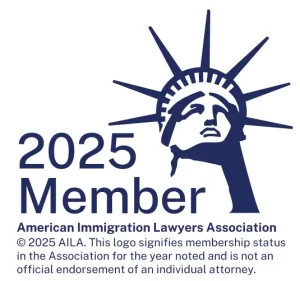
When Traditional TN Categories Don’t Quite Fit: Strategic Guidance for Difficult Cases
If you’re a Canadian professional who doesn’t perfectly fit one of the standard TN visa categories, you’ve likely encountered two options that seem promising but carry a warning label: Management Consultant and Scientific Technician/Technologist. These categories are powerful tools for the right situations, but they’re also the most heavily scrutinized by U.S. Customs and Border Protection officers.
After 29 years practicing immigration law, I’ve successfully navigated numerous difficult TN applications in both categories. The key isn’t just understanding what the regulations say—it’s knowing how CBP views these applications, when to pursue them, and most importantly, how to document your case so it actually gets approved rather than denied at the border.
This comprehensive guide explains both the regulations and the real-world strategies that work for borderline TN applications in these challenging categories.
Why These Categories Are Uniquely Challenging
Management Consultant and Scientific Technician/Technologist have earned reputations as “catch-all” categories within the TN framework. Immigration attorneys know this. More significantly, CBP officers know it too. When an attorney has a client who doesn’t fit neatly into Engineer, Accountant, or another straightforward category, these two classifications often become the strategic fallback options.
This creates an inherent credibility problem at the border. CBP officers have seen countless attempts to shoehorn regular employees into these categories when no other visa exists for the position. Their heightened scrutiny isn’t irrational—it’s based on years of experience spotting applications that don’t truly meet the regulatory requirements.
The challenge intensifies because both categories have somewhat vague definitions compared to other TN professions. What exactly constitutes “management consulting” versus just being a manager? How do you demonstrate “independent judgment” for a scientific technician? These ambiguities create both opportunity and risk.
Unlike the H-1B visa, TN status requires fitting into specific professional categories rather than having open-ended specialty occupation qualification
Recent Policy Developments
U.S. Citizenship and Immigration Services updated its Policy Manual regarding TN classifications in June 2025, effective immediately. While these updates primarily clarified existing requirements, they also emphasized stricter interpretations for certain categories, particularly Scientific Technician/Technologist. Officers are now explicitly instructed that ST/T work must be “managed, coordinated, and reviewed” by the supervising professional, with no patient care or independent work permitted.
For Management Consultants, USCIS reinforced that these professionals “provide services that improve the managerial, operating, and economic performance of public and private entities by analyzing and resolving strategic and operating problems.” This emphasis on operational improvement becomes critical when documenting these applications.
Understanding What the Law Actually Says
Before exploring strategies for difficult cases, let’s establish the regulatory foundation. The TN professional categories are defined in Appendix 1603.D.1 to Annex 1603 of NAFTA (now continued under USMCA) and codified in 8 CFR 214.6.
Management Consultant Requirements
According to Appendix 1603.D.1, a Management Consultant must have:
Baccalaureate or Licenciatura Degree; OR
Equivalent professional experience as established by statement or professional credential attesting to:
- Five years’ experience as a management consultant, OR
- Five years’ experience in a field of specialty related to the consulting agreement
The INS Inspectors NAFTA Manual (which still guides much decision-making today) provides this excellent definition:
“Management consultants provide services that are directed toward improving the managerial, operating, and economic performance of public and private entities by analyzing and resolving strategic and operating problems and thereby improving the entity’s goals, objectives, policies, strategies, administration, organization, and operation.”
This definition is crucial—it emphasizes improving and optimizing rather than simply performing operational tasks. A management consultant doesn’t just do the work; they make the organization better at doing the work.
The Employee Problem for Management Consultants
The same NAFTA Manual addresses the thorniest issue with Management Consultant applications: employment status. According to the guidance, management consultants are:
- Usually independent contractors or employees of consulting firms under contracts to U.S. entities
- They may be salaried employees of U.S. entities “only when they are not assuming existing positions or filling newly created positions”
- In other words, they may only fill “supernumerary temporary positions”
- Alternatively, if the employer is itself a U.S. management-consulting firm, the employee may be coming temporarily to fill a permanent position
This explains why CBP is particularly skeptical of Management Consultant applications where the Canadian is simply being hired as an employee to perform ongoing business functions. It’s the hardest structure to approve, though not impossible with the right approach.
Scientific Technician/Technologist Requirements
The requirements for Scientific Technician/Technologist appear deceptively simple in Appendix 1603.D.1:
Possession of:
- (a) Theoretical knowledge of any of the following disciplines: agricultural sciences, astronomy, biology, chemistry, engineering, forestry, geology, geophysics, meteorology, or physics; AND
- (b) The ability to solve practical problems in any of those disciplines, OR the ability to apply principles of any of those disciplines to basic or applied research
The June 2025 USCIS Policy Manual guidance adds important context:
- The theoretical knowledge generally should have been acquired through at least two years of training in a relevant educational program
- The ST/T must work in direct support of a supervisory professional who holds at least a bachelor’s degree in one of the ten specified disciplines
- The work must be “managed, coordinated, and reviewed” by the supervising professional
- Officers should consider all documented training and experience
- Eligibility must be evaluated based on the primary activity, not just the job title
The government also explicitly states that aircraft mechanics, despite meeting other criteria, do not qualify because they lack independent judgment—their work is dictated by manuals due to FAA regulations.
The Critical Element: Independent Judgment
For Scientific Technician positions, demonstrating independent judgment is often the make-or-break factor. This requirement separates technicians who simply follow procedures from those who apply theoretical knowledge to solve problems.
Independent judgment means the worker must:
- Make decisions about how to achieve objectives, not just follow step-by-step instructions
- Apply scientific principles to varying circumstances
- Exercise discretion in problem-solving
- Adapt approaches based on conditions and requirements
If a computer program designs everything and the worker merely assembles parts, there’s no independent judgment. If government regulations dictate every step, there’s no independent judgment. But if the worker applies knowledge to formulate solutions, quality control, or process optimization—that demonstrates independent judgment.
Experience Substitution: The Four-to-One Rule
Both categories allow experience to substitute for formal education, though the mechanics differ slightly.
For Management Consultants, this is explicit in the regulations: five years of relevant experience replaces the degree requirement.
For Scientific Technicians, USCIS uses a general substitution principle employed across immigration categories: approximately four years of progressive, qualifying experience may substitute for each year of required education. This means someone with 16+ years of documented, relevant experience could meet the educational requirement without any formal degree.
I’ve successfully obtained TN approvals for Scientific Technicians with 20+ years of experience and no formal degree whatsoever, when their work clearly demonstrated theoretical knowledge and the ability to solve practical problems in their field.
The key is documentation. Experience must be progressive (increasing responsibility over time), relevant to the specific discipline, and well-documented through detailed employer letters that describe not just job duties, but achievements and problem-solving applications.
Management Consultant: Straightforward Cases
Let’s establish what works easily before addressing the difficult situations. Understanding the simple cases helps illustrate where the boundaries lie.
Easy Case #1: Employee of a Management Consulting Firm
A Canadian works for a consulting company in Toronto. That firm has a contract with a U.S. corporation to analyze and improve their supply chain operations. The consultant has an MBA and five years of consulting experience. The Canadian will spend six months in the United States working on this specific consulting project.
This application is straightforward because:
- The employer is itself a consulting firm
- There’s a defined project with clear scope
- The work is genuinely consultative (analyzing and improving operations)
- The consultant has appropriate credentials
- It’s clearly temporary with a specific end point
This type of case typically succeeds at the port of entry with proper documentation.
Easy Case #2: Self-Employed Consultant with Multiple Contracts
A Canadian has operated as a self-employed business consultant for eight years, specializing in retail operations optimization. She has a degree in business administration and multiple consulting contracts with U.S. retailers. She provides her services as an independent contractor, typically working with each client for 3-6 months to assess operations, implement improvements, and train staff.
This application works because:
- Clear pattern of consulting work (not seeking employment)
- Multiple contracts demonstrate genuine consulting business
- Independent contractor status (not filling an employee role)
- Specific expertise in a business optimization area
- Well-documented track record
Again, this typically succeeds at the border with appropriate documentation of the contracts and consulting history.
Why These Cases Work at the Border
CBP officers can quickly assess these applications because they fit the clear pattern of what management consulting means: expertise being applied to improve organizational performance, typically through independent contractor or consulting firm structures, with defined scopes and outcomes.
Management Consultant: Difficult Cases and Strategic Approaches

Now we enter challenging territory: cases that look questionable to CBP but may still qualify under the regulations with proper presentation.
The Non-Traditional Consultant Challenge
Consider this pattern: A professional has deep expertise in a specific business function—not because they studied consulting, but because they excelled in that function, advanced through increasing responsibility, and ultimately developed insights into how to optimize that process for other companies.
Think of someone who worked in sales, became a sales manager, started their own business in the industry, and now has genuine expertise in optimizing sales processes and training sales teams. Or a skilled tradesperson who developed specialized knowledge about cost estimation and project bidding through 20 years of experience.
These individuals possess real consulting-level expertise. They can genuinely improve how companies operate in specific areas. But CBP officers may see “sales” or “electrician” in the background and immediately think: “This person is just trying to get a job doing sales” or “This isn’t a consultant, it’s a tradesperson.”
The Vermont Service Center Strategy
For these non-traditional but legitimate management consultant cases, I strongly recommend filing a petition with U.S. Citizenship and Immigration Services at the Vermont Service Center using Form I-129, rather than applying at the port of entry.
Why Vermont over the border?
At the border, CBP officers make instantaneous decisions, often with limited time to review extensive documentation. They’re trained to spot common patterns of fraud and misuse. When they see a borderline case, their default tends toward denial to avoid approving questionable applications.
The Vermont Service Center offers several critical advantages:
More thorough review: USCIS adjudicators have time to carefully consider nuanced arguments about how someone’s background qualifies them as a management consultant.
Comprehensive documentation: You can submit detailed evidence packages that might never be fully reviewed at the border.
Written legal arguments: You can explain why the person’s experience meets the regulatory definition, with supporting evidence and precedent.
Considered decision-making: The adjudicator is evaluating the application in an office setting, not making snap judgments while managing a queue of travelers.
My success rate with this approach for difficult management consultant cases is 100%—though I should clarify this represents roughly 10 cases, not hundreds. I’m selective about which cases to pursue, which contributes to that success rate. More on that philosophy later.
The Independent Contractor Advantage
When structuring a difficult Management Consultant application, independent contractor status significantly improves approval odds compared to direct employment.
Here’s why: An independent contractor relationship naturally demonstrates that:
- The work is project-based rather than filling an ongoing position
- The consultant is providing expertise, not just labor
- There’s a defined scope and outcome
- The relationship is truly consultative
The consulting agreement should clearly articulate:
- Specific business functions to be optimized or improved
- Expected deliverables (process improvements, training, system optimization)
- Defined project timeline
- How success will be measured
- The consultant’s independent judgment and decision-making authority
Documentation That Persuades USCIS
For difficult Management Consultant cases filed with Vermont Service Center, documentation makes the difference between approval and denial. Here’s what works:
Achievement Stories, Not Just Job Duties
Rather than listing responsibilities, provide concrete examples with structure: beginning, middle, and end. Each story should demonstrate:
- A specific business problem or inefficiency
- The analysis you conducted
- The solution you designed or implemented
- Measurable results (cost savings, efficiency gains, revenue increases)
For example, don’t just say “managed sales operations.” Instead: “Analyzed Company X’s sales process over three months, identified inefficiencies in lead qualification that wasted 15 hours per week, designed new qualification system, trained staff, resulting in 23% increase in qualified leads and 40% reduction in wasted effort.”
Third-Party Validation
Letters from previous employers or clients that attest to:
- Specific improvements you implemented
- Quantified results and cost savings
- Your expertise in optimizing that particular business function
- How you improved their operations beyond just performing tasks
Multiple attestation letters from different companies over several years create powerful credibility.
Progressive Experience Documentation
Show how your career trajectory demonstrates increasing expertise in optimization and improvement:
- Started in operational role
- Demonstrated excellence and innovation
- Promoted to supervisory/management positions
- Developed systems and processes that improved outcomes
- Applied this knowledge to help other organizations
Clear Consulting Framework
The employer letter should frame the engagement explicitly around operational improvement:
- “Hired to optimize [specific business function]”
- “Expected to analyze, redesign, and implement improvements to [process]”
- “Will train staff on improved methodologies”
- “Goal is to increase efficiency and reduce costs in [area]”
Processing Times and Costs
Vermont Service Center currently processes I-129 petitions in approximately 4-6 months (check current times at USCIS.gov as these fluctuate). The filing fee is $460.
Premium processing is available for an additional $2,685, providing a decision within 15 business days.
For a business that wants to hire someone and get them working, this seems expensive and slow compared to the border application (instant, $6 for I-94). But for a difficult case, it’s worth every penny. The difference between approval and denial can be a properly reviewed petition versus a snap judgment at the port of entry.
Scientific Technician/Technologist: Straightforward Cases
As with Management Consultant, let’s first examine what works easily to establish the baseline.
Easy Case: Fire Alarm Installation Technician
A Canadian has an associate’s degree in fire alarm systems. He’s being hired by a U.S. company that designs and installs commercial fire suppression systems. The owner/manager is a licensed engineer. The technician will install systems according to engineered plans but will exercise significant independent judgment regarding optimal placement, efficient routing, compliance with site-specific conditions, and problem-solving when installations encounter unexpected obstacles. Technical questions are referred to the supervising engineer.
This application succeeds because it clearly meets all three elements:
- ✓ Relevant technical education (associate’s degree in fire alarm systems)
- ✓ Supervision by degreed professional (licensed engineer)
- ✓ Independent judgment (adapting installations to site conditions, troubleshooting, optimizing approaches)
Easy Case: Geological Technician
A Canadian has an associate’s degree in geological sciences and eight years of experience as a field technician. He’s being hired by a U.S. mining company where he’ll work under the direction of professional geologists (all with bachelor’s or advanced degrees in geology). His work involves collecting samples, conducting field tests, analyzing data for mineral content, and making recommendations about where to focus exploration efforts.
This works because:
- ✓ Theoretical knowledge in geology (degree plus extensive experience)
- ✓ Clear supervision structure (reports to professional geologists)
- ✓ Independent judgment (analyzing data, making recommendations, problem-solving in field conditions)
When Experience Replaces Education
A Canadian has no formal degree but has 16 years of progressive experience in environmental testing and monitoring. He started as an assistant, learned from senior technicians and supervising scientists, advanced to independent work conducting soil and water quality testing, and now trains others in sampling techniques and quality control procedures. He’s being hired by a U.S. environmental consulting firm to work under their chief environmental scientist.
Using the 4:1 experience substitution ratio, 16 years of relevant experience equates to four years of education (meeting the typical associate’s degree requirement). Combined with demonstrated theoretical knowledge and problem-solving ability through documented work history, this application can succeed.
Scientific Technician/Technologist: Difficult Cases and Strategic Approaches

The challenging ST/T cases typically involve either non-traditional educational backgrounds or positions where the “independent judgment” element isn’t immediately obvious.
The Production Manager Who’s Really a Scientific Technician
Here’s a real pattern from my practice: A company that produces specialized engineered products (like structural concrete components, precision metal parts, or technical assemblies) needs someone to manage quality control and production processes. They initially describe this as a “production manager” position.
But look deeper: This person isn’t just supervising assembly. They’re:
- Formulating specialized material compositions to meet engineering specifications
- Conducting quality control testing requiring scientific knowledge
- Making adjustments to processes based on test results and performance requirements
- Applying theoretical knowledge to solve production problems
- Working under the direction of degreed engineers who design the products
This is genuinely Scientific Technician work, not merely production management. The key is documentation that emphasizes:
- The scientific and technical nature of the work
- Application of theoretical knowledge to practical problems
- Independent judgment in quality control and process optimization
- Clear supervision by degreed professionals in relevant fields
Documentation Strategy for Difficult ST/T Cases
The approach mirrors what works for Management Consultant: comprehensive documentation filed with Vermont Service Center rather than at the border.
Establish Theoretical Knowledge
If formal education is limited, document training through:
- Trade certifications with technical content
- Industry-specific technical training programs
- Progressive work experience with detailed descriptions of technical knowledge acquired
- Supporting letters from previous supervisors or colleagues (preferably degreed professionals) attesting to theoretical knowledge
Demonstrate Independent Judgment Through Examples
Provide specific instances where the technician:
- Analyzed a problem and determined appropriate solution
- Made decisions about processes or methods
- Applied scientific principles to varying circumstances
- Exercised discretion in quality control or optimization
Clarify the Supervision Structure
The employer letter should explicitly address:
- The supervising professional’s qualifications (degree, experience in relevant field)
- How the supervision works (regular consultation, review of decisions, oversight of work)
- The technician’s scope of independent judgment within that framework
- When questions or concerns are escalated to the supervisor
Distinguish from Non-Qualifying Categories
If there’s risk of confusion with non-qualifying work (like pure manual labor or procedure-following), the documentation should clearly explain the difference:
- Not just following manuals or instructions
- Not simple assembly or repetitive tasks
- Requires theoretical knowledge application
- Involves problem-solving and judgment
When These Categories Don’t Work: Honest Assessment
I balance success with reality, but not at my clients’ expense. I get pleasure from solving problems and get paid well for it. But I derive no pleasure from taking people’s money to shuffle paper for a denial.
This philosophy means I refuse cases I don’t believe will succeed, even when clients are willing to pay. Understanding when these categories don’t work is as important as knowing when they do.
Management Consultant Cases to Avoid
Regular Employees Doing Operational Work
If someone is simply being hired to perform ongoing operational tasks—sales, marketing, project management—without a genuine consultative element focused on organizational improvement, it’s not a Management Consultant position. Calling it “sales consultant” doesn’t make it consulting if the work is actually just sales.
No Relevant Experience or Education
Someone with three years of general business experience and no specialized expertise in any particular business function is unlikely to qualify as a management consultant, regardless of how the position is framed.
Permanent Positions Without Consulting Framework
If the U.S. employer simply wants to fill a regular management position with no defined consulting project, measurable improvement objectives, or temporary nature, this isn’t appropriate for the Management Consultant category.
Scientific Technician Cases to Avoid
No Relevant Education or Experience
The truss assembly example from my practice illustrates this: A company manufacturing roof trusses wanted to bring in Canadian workers to assemble the trusses. The workers had construction backgrounds but no technical training or education in engineering, structural design, or related fields.
Even though engineers design the trusses and supervise the work, two critical elements were missing:
- The workers lacked theoretical knowledge in any relevant scientific discipline
- The work appeared to be primarily assembly from computer-generated designs with little independent judgment
I advised the company I couldn’t help them because the workers didn’t genuinely qualify as Scientific Technicians, despite the company’s desperate need for employees.
Lack of Independent Judgment
The aircraft mechanic example demonstrates this perfectly: Aircraft mechanics typically have associate’s degrees in aircraft maintenance and work under the supervision of degreed engineers. But government regulations dictate every repair and maintenance procedure through detailed manuals. There’s no independent judgment—just following prescribed procedures.
The government explicitly recognizes that aircraft mechanics don’t qualify for Scientific Technician status.
Similarly, hard rock miners exercise practical skills and judgment, but USCIS doesn’t recognize this as the type of scientific independent judgment required for ST/T classification. These applications are routinely denied.
Patient Care Roles
The June 2025 Policy Manual update explicitly excludes patient care from Scientific Technician classification. Medical laboratory technologists, radiologic technologists, and similar healthcare positions that involve direct patient care do not qualify, as medicine is not among the ten covered disciplines.
Healthcare employers will need to explore alternative visa categories for these roles.
Border vs. Vermont Service Center: Making the Strategic Choice
Every TN application faces a fundamental strategic decision: apply at the port of entry for instant determination, or file a petition with USCIS for more thorough review?
Apply at Port of Entry When:
You Clearly Fit the Category
- Traditional consulting firm employee on a defined project
- Self-employed consultant with multiple contracts
- Scientific technician with relevant degree and obvious independent judgment role
- Your background and position align perfectly with regulatory definitions
Documentation Is Straightforward
- Standard employer letter
- Degree certificates
- Basic supporting documents
- Everything CBP needs fits in a neat package
Time Matters
- Instant decision (admitted or denied immediately)
- Can start work as soon as admitted
- No filing fees beyond $6 I-94
Cost Is a Concern
- Free to apply (beyond travel costs)
- No attorney fees for basic cases that clearly qualify
File with Vermont Service Center When:
Your Case Requires Explanation
- Non-traditional background for the category
- Experience substitution for education
- Complex fact pattern that needs detailed presentation
- Relationship between your experience and the position isn’t immediately obvious
Documentation Is Extensive
- Multiple attestation letters
- Detailed achievement narratives
- Technical explanations of how work meets regulatory definitions
- Legal arguments about qualification
Risk of Border Denial Is High
- Position looks questionable at first glance
- CBP is unlikely to review all documentation thoroughly
- You need adjudicator to consider nuanced arguments
Cost-Benefit Favors Certainty
- $460 filing fee plus possible $2,685 premium processing
- 4-6 months standard processing (2 weeks with premium)
- But significantly higher approval likelihood for borderline cases
- Denials can be appealed; border denials cannot
For businesses desperate to hire someone, $3,000-$3,500 and a few weeks or months is negligible if it’s the difference between getting approval and facing denial.
My Success Rate and Why It Matters
I mentioned my 100% success rate with difficult Management Consultant and Scientific Technician cases filed at Vermont Service Center. That’s approximately 10 cases, not hundreds—I’m transparent about sample size.
But here’s why this matters: That success rate exists because I’m selective about which cases to pursue. I evaluate each situation honestly and only file cases I believe have reasonable chances of approval.
When the truss assembly company contacted me, they would have happily paid me to try getting their workers approved. They had a desperate business need. But I explained my philosophy and declined the case because I didn’t believe it would work.
This approach serves three purposes:
Protects Clients They don’t waste money on cases with low probability of success
Maintains Credibility USCIS adjudicators see well-prepared cases from my practice, not frivolous attempts to push unqualified applicants through
Focuses Resources I invest my time and expertise where I can genuinely help people succeed
When to Get Legal Help

Many straightforward TN applications can be handled without an attorney. If you’re an engineer with a clear engineering degree being hired to do obvious engineering work, you probably don’t need representation.
But for Management Consultant and Scientific Technician cases, the calculus is different.
For professionals with long-term U.S. career goals, TN status can serve as a bridge to an employment-based green card application
Self-Assessment Questions
Do you fit the category perfectly?
- Traditional consulting firm or self-employed consultant structure?
- Scientific technician with relevant associate’s degree?
- Clear independent judgment role with obvious supervision structure?
Is your documentation straightforward?
- Standard employer letter sufficient?
- No complex explanations needed?
- Experience and qualifications are obvious?
Are you confident explaining your case to CBP?
- Can you articulate how you meet regulatory requirements?
- Prepared for skeptical questions?
- Have responses ready for likely objections?
If you answered “yes” to most of these, you might successfully apply at the border without representation.
Red Flags That You Need Representation
- Non-traditional path into consulting or technical work
- Experience substitution for formal education
- Complex relationship between your background and the position
- Position description that might raise eyebrows at CBP
- Employee status for Management Consultant (not independent contractor or consulting firm)
- Previous TN denial in any category
- Uncertainty about whether you actually qualify
For these situations, an experienced immigration attorney adds significant value by:
- Honestly assessing whether your case is viable
- Strategically documenting to address weaknesses
- Deciding whether border or Vermont Service Center is appropriate
- Preparing comprehensive evidence packages
- Crafting legal arguments that persuade adjudicators
- Preventing costly mistakes that lead to denials
- If neither Management Consultant nor Scientific Technician categories fit your situation, consider alternative pathways such as the E-2 treaty investor visa for Canadian entrepreneurs.
Investment Considerations
For border applications, many attorneys charge $1,500-$3,000 to prepare the case. For Vermont Service Center petitions with premium processing, total investment might be $4,500-$6,000 (including filing fees).
But consider what’s at stake: the difference between getting approval to work in the United States versus facing denial. For professionals relocating for significant opportunities, this is a worthwhile investment for peace of mind and maximized success probability.
Conclusion: Success in Difficult TN Categories Requires Strategy
Management Consultant and Scientific Technician/Technologist categories offer valuable pathways for Canadian professionals who don’t fit neatly into other TN classifications. But success requires more than just hoping CBP officers will approve questionable applications.
The key elements for difficult cases:
Honest Assessment Realistically evaluate whether you truly qualify or if you’re trying to force a square peg into a round hole
Strategic Application Method Recognize when Vermont Service Center provides better odds than the border
Comprehensive Documentation Go beyond basic requirements to demonstrate how you genuinely meet regulatory definitions
Professional Presentation Frame the position explicitly around improvement, optimization, and consultative work (for Management Consultant) or scientific problem-solving with independent judgment (for Scientific Technician)
Realistic Expectations Understand these are genuinely difficult categories with higher scrutiny—not every case will succeed
With nearly three decades of experience handling complex Canadian immigration cases, I’ve developed approaches that work for borderline situations when the underlying qualifications are genuinely there. The Vermont Service Center strategy, comprehensive documentation methods, and honest case assessment have produced consistent success.
But this success requires recognizing when not to pursue these categories as much as knowing when to use them strategically.
Get Professional Guidance for Your Situation
If you’re considering a Management Consultant or Scientific Technician TN application and your case isn’t entirely straightforward, a consultation can clarify your options and chances of success.
Located 20 minutes northeast of Billings, Montana, I serve Western Canadian clients throughout Alberta, British Columbia, and Saskatchewan (Calgary is approximately 550 miles away). My practice focuses on Canadian immigration to the United States, with particular expertise in strategic TN applications and cases that require nuanced approaches.
Contact Immigration Law of Montana, P.C. at 406-373-9828 or visit https://www.immigrationlawofmt.com to discuss your specific situation.
Disclaimer: This article provides general information about TN visa regulations and strategies. It does not constitute legal advice for your specific situation. Immigration laws and policies change, and individual circumstances vary significantly. Consult with a qualified immigration attorney about your particular case before making decisions or filing applications.
